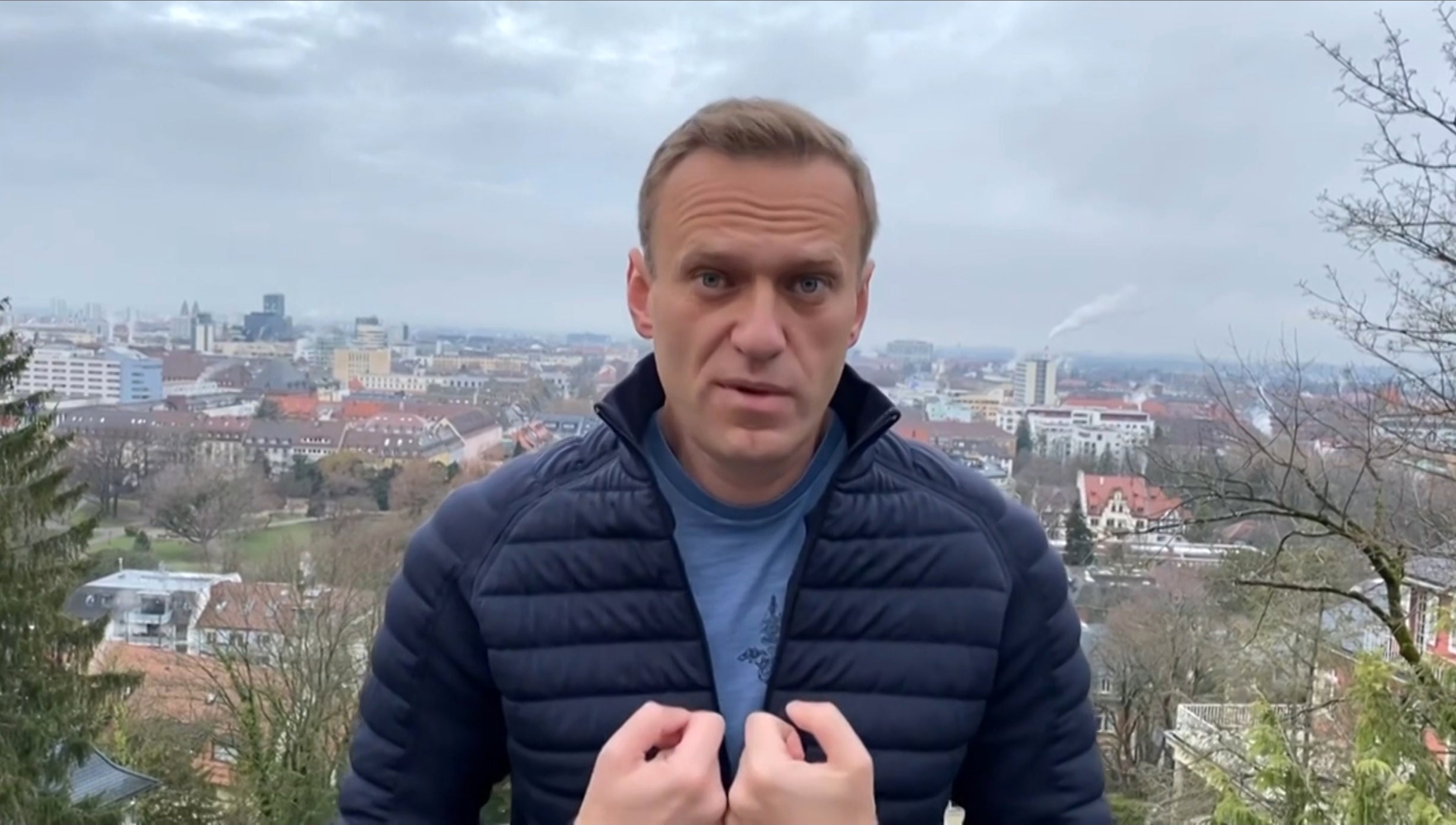Poisoned Kremlin critic Navalny announces imminent return to Russia
Navalny said he would fly home on Sunday despite the fear of arrest

Your support helps us to tell the story
From reproductive rights to climate change to Big Tech, The Independent is on the ground when the story is developing. Whether it's investigating the financials of Elon Musk's pro-Trump PAC or producing our latest documentary, 'The A Word', which shines a light on the American women fighting for reproductive rights, we know how important it is to parse out the facts from the messaging.
At such a critical moment in US history, we need reporters on the ground. Your donation allows us to keep sending journalists to speak to both sides of the story.
The Independent is trusted by Americans across the entire political spectrum. And unlike many other quality news outlets, we choose not to lock Americans out of our reporting and analysis with paywalls. We believe quality journalism should be available to everyone, paid for by those who can afford it.
Your support makes all the difference.Kremlin foe Alexei Navalny has announced he plans to return to Russia for the first time since being poisoned — setting up a confrontation with a regime that has already signalled it intends to jail him on arrival.
In a short video released on social media, Mr Navalny said he had bought tickets for a Sunday flight into Moscow: “Russia is my country, Moscow is my city, and I miss them both. On 17 January, I’m coming home.”
The opposition leader, who has been in Germany since late August having been transferred to Berlin for life-saving treatment, said there was never any doubt in his mind that he would travel back. Germany was a “cool country,” but he was there not of his own free will.
“I found myself in Germany in an intensive care box because they tried to kill me” he said. “Now Putin, having given the order to kill me, is going crazy in his bunker, telling his servants to do everything to stop me returning.”
Mr Navalny fell into a coma on a flight from Siberia to Moscow on 20 August. Several independent European laboratories later concluded he had been poisoned with a nerve agent from the Novichok family of compounds first developed in the Soviet Union.
A separate journalistic investigation later determined the opposition politician had been followed by a hit squad of state security agents for the best part of four years. In a follow up to that report, Mr Navalny himself tricked one of his would-be assassins into an apparent confession, teasing stunning details of the operation during a hoax phone call.
Russian authorities, who deny any involvement in the apparent assassination attempt, have not behaved in a way that is wholly consistent with innocence.
State investigators first refused to open a criminal investigation into the fact of his poisoning. Then police opened such an investigation against Mr Navalny’s associates for merely appearing at the Moscow apartment of the alleged security agent.
On Tuesday, the state penitentiary service announced is was pushing for a suspended sentence still hanging over the Putin critic to be converted into a real jail term.
That sentence, handed down in 2014 in the so-called “Yves Rocher” trial, was later dismissed by the European Court of Human Rights as “unjust.” Despite that censure, Russia has refused to overturn the verdict.
Speaking at his annual press conference in December, Vladimir Putin insisted his men had anything to do with Mr Navalny’s poisoning.
“If they wanted to do it, they’d have finished the job,” the Russian president said.


Join our commenting forum
Join thought-provoking conversations, follow other Independent readers and see their replies
Comments